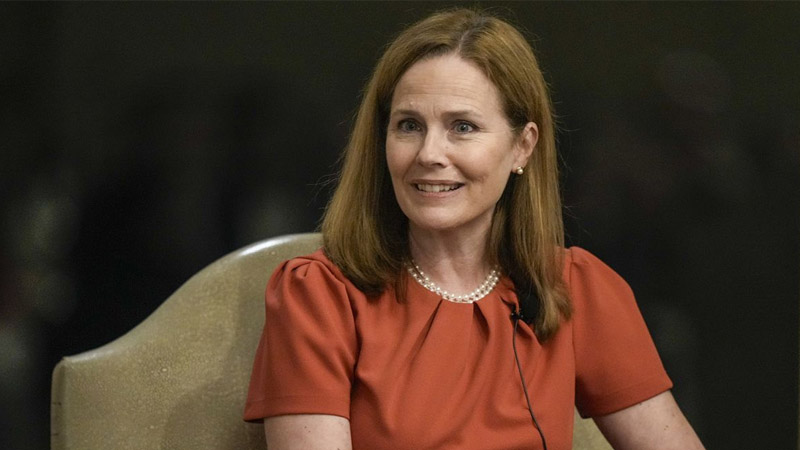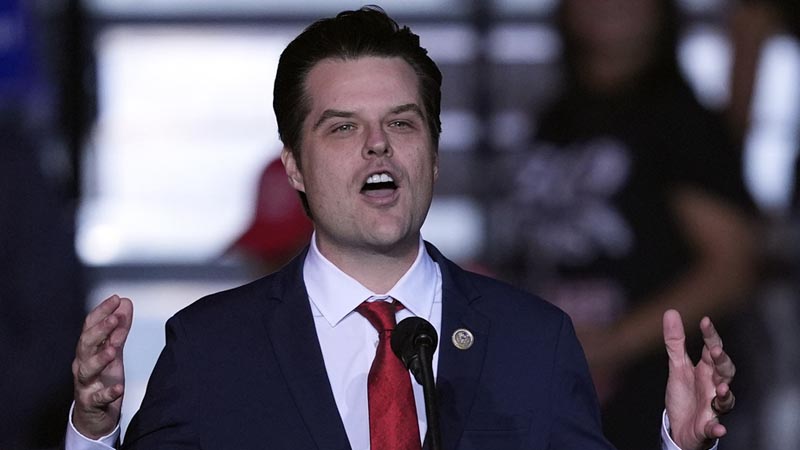‘It presents tradition itself as the constitutional argument’ Amy Coney Barrett’s Critique Could Signal a Supreme Court Rift

(AP Photo/Morry Gash) Morry Gash/AP
The final appointee of former President Donald Trump to the Supreme Court, Amy Coney Barrett, seems to be on a potential collision course with far-right Justice Clarence Thomas. This development could have significant implications for several upcoming high-profile cases.
Politico reports that the conservative Barrett, whose nomination was heavily scrutinized due to her ties with religious extremists and her pivotal vote in overturning Roe v. Wade, recently sent a pointed message to her fellow GOP-backed judge. In a trademark case involving anti-Trump T-shirts, Barrett concurred with Thomas’s judgment but sharply criticized his reasoning.
“Barrett … added what could be interpreted as a jab at the very premise of originalism, which has been a hallmark of the conservative legal movement for decades,” wrote Josh Gerstein.
“‘It presents tradition itself as the constitutional argument. … Yet what is the theoretical justification for using tradition that way?’ she wrote. Barrett’s next critique amounts to fighting words among legal conservatives: She compared Thomas’ approach to the kind of amorphous, multi-pronged legal tests that conservatives frequently accuse liberal judges of concocting.”
“Relying exclusively on history and tradition may seem like a way of avoiding judge-made tests. But a rule rendering tradition dispositive is itself a judge-made test,” Barrett asserted.
Gerstein highlights that this schism could affect key upcoming cases. One such case, United States v. Rahimi, examines whether there is a constitutional precedent for restricting gun ownership for individuals under domestic violence restraining orders. Another crucial case could determine whether Trump has immunity from prosecution for attempting to overturn the presidential election.
“Thomas, famous for his intransigence, might not care about … backlash, but the more pragmatically minded Barrett is surely aware of it,” wrote Gerstein. “For the moment, the battle lines in this civil war among the court’s six conservatives remain somewhat murky. Justices Samuel Alito and Neil Gorsuch seem to be squarely in Thomas’ camp, while Chief Justice John Roberts and Justice Brett Kavanaugh are being cagey about where they stand.”
As these cases progress, the ideological rift within the Supreme Court’s conservative bloc may become more pronounced, potentially shaping the outcomes of decisions that could impact American society profoundly. Barrett’s critique of Thomas’s methodology not only challenges a cornerstone of conservative legal thought but also sets the stage for a potential realignment within the highest court in the land.


